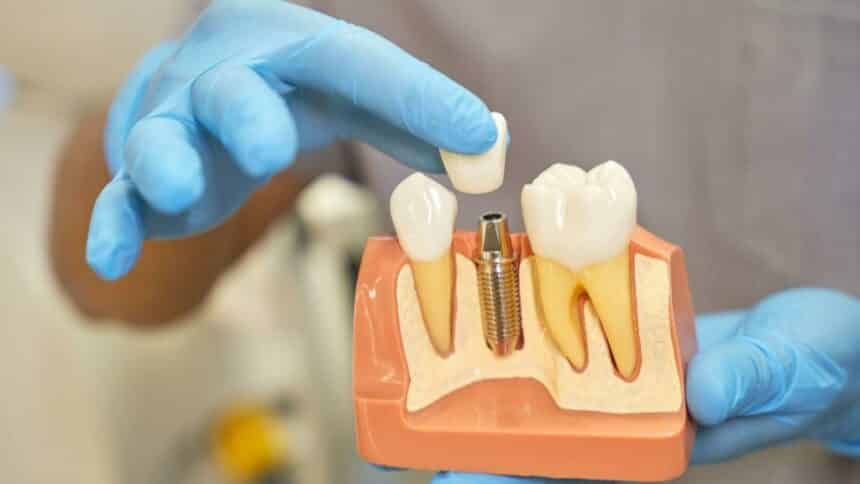Nowadays, more and more people are choosing to have a tooth implant inserted. Quite a few of them feel a certain fear of the procedure. They mainly worry about the pain and the duration of the procedure. For this reason, we have decided to give you an idea of what the tooth implant procedure looks like.
What is an implant and is a tooth implant for you?
Dental implants are currently one of the most expensive, but also one of the most aesthetic and permanent solutions to the problem of missing teeth. The implant itself is not everything, of course - you still need a crown, but one step at a time.
The implant looks like a screw. It is made of titanium or zirconium. Both of these materials are inert to our tissues. When a tooth implant is inserted, it is screwed into the jaw or mandible, where it fuses with the bone, thus preventing bone loss. You can read more about the types of implants in the article "Dental implants in the UK - types and price".
As for the crown, this one can be ceramic or made of zirconium. Each of them is deceptively similar to a real tooth, so no one will realise that it is not real. Sometimes acrylic crowns are made, but they are not as durable and are used as a temporary solution.
Placing a tooth implant is an excellent choice in the event of the loss of one's natural tooth or major missing teeth. It is not just about aesthetic considerations, but more importantly about health. You can read more about this in our article "Missing tooth - when do you need to fill the gap left by an extracted tooth?".
Now let's get down to the main topic.

What does the implant insertion look like?
The first step before placing a tooth implant is, of course, the consultation at the dentist's surgery. The dentist will take an X-ray to see if there is any bone loss, for example. Sometimes a bone reconstruction or sinus lift may be necessary.
In some cases it may also be necessary to extraction of the remaining tooth, or rather its root.
The dentist will also ask you about any chronic illnesses or conditions that may be a contraindication to a tooth implant. These may include, for example, osteoporosis, blood clotting disorders or epilepsy. You will also discuss the options and types of implants and crowns with your doctor.
Once you have decided on a specific solution, You will have to treat absolutely all the teeth in your mouth. In order for a tooth implant to take place, for example, you must not have any cavities, and tartar and deposits should be cleaned. Decay should also be healed, and not only for the insertion of an implant, as you will read about in the article "Decayed teeth a danger to the health of the whole body".
Once all your teeth have been treated and the details have been agreed, the tooth implant procedure will take place. The dentist will give you a local anaesthetic and then cut your gum and drill a hole in which to place the implant, which will be fused to your bone. The dentist will also give you stitches. The whole procedure should not take more than half an hour.
However, this is not the end of the process. It is still necessary to place on the implant crown, which will be made by the prosthodontist. However, this takes place several months after the implant is placed, once the tissues have healed and the implant has fused with the bone. Until then, it is invisible, as it is completely covered by the gum.

Cost of a tooth implant in the UK
There is no doubt that the cost of implants is high. However, remember that at our dental practice you have the option of paying by instalments if the cost of treatment exceeds £350.Our instalment scheme is governed by the Financial Conduct Authority - FCA number 619628 More on this in the text "Teeth on credit: dental treatment on hire purchase".
So what are the costs of a tooth implant? At our clinic, the cost of an Ankylos implant is a cost starting from £1000. Importantly - it is possible to place several crowns on one implant, which is very good news when you have more missing teeth. Another important point is that Ankylos provides a lifetime guarantee on its implants. So it is a big but one-off expense.
You will pay £500 for an implant abutment and £700 for a crown. Prices for other services you may need, such as bone reconstruction or a sinus lift, can be found here: Price list Implants.
If you still have any questions about implants, we invite you to an appointment where we will dispel all your doubts.

